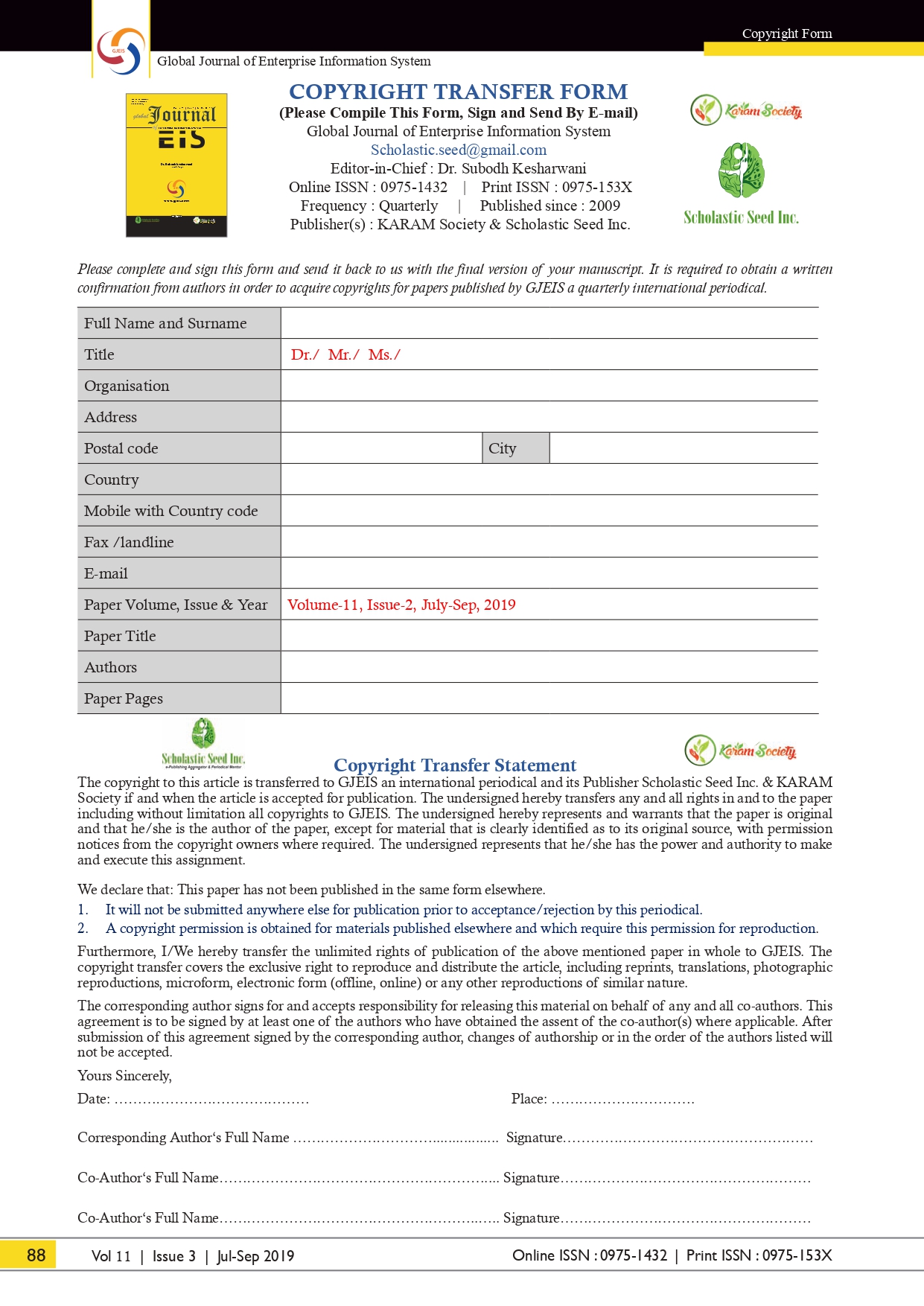Perceptional Barriers of E-learning of Teachers and Learners in India
Abstract
Purpose: India is a fast-developing country with large population. Providing education to
such a large population itself is a challenge and access to quality training for professional
and personal development and education through powerful tool of e-learning has become
need of the hour. e-Learning has so much of potential in India, but adoption has been slow
and will need a major marketing and awareness effort. In India, globalization of education
has generated sudden quantitative growth in higher education. However, to meet this sudden
growth there is an acute dearth of qualified and trained teaching faculty. To implement
successful e-learning environment, it is very important to identify and remove or minimise the
barriers before teachers and learners. Intrinsic barriers are related to individual perceptions
and these barriers are sometimes based on the personal experiences of the respondents.
This study is intended to investigate the perception of barriers related to e-Learning in
formal higher education in India along with analysis of prospect of e-Learning in the related
areas.
Design/Methodology/ Approach: This research study is a descriptive study which aims to
study the existing scenario related to barriers of implementing e-learning in higher education
sector in India. This study has adopted quantitative approach using primary data. The
quantitative data was collected through survey questionnaire. This survey questionnaire was
developed after reliability testing and validation.
Findings: This paper highlights the Intrinsic/ Perceptional barriers in implementing
E-learning in Higher Education in India. The biggest problem in the growth of e-Learning
in Higher Education of India seems to be Intrinsic/ perceptional problem. Faculty members
and learners have concerns regarding lack of motivations and interest towards e-Learning.
Respondents also indicated difficulty and Frustration to adopt and opt for e-Learning.
Originality/ Value: This research study outlines the triangulation of the results related to
perception barriers perceived by faculty members, administrators and learners and highlights
that these barriers are of paramount importance and their minimisation or removal is most
important aspect for successful implementation of e-learning. Therefore, policy makers
should come out with some motivational mechanism to overcome such psychological barrier.
A dedicated ICT department needs to be established in every educational organization.
Faculty and learners are key stakeholders of any higher education institute, and e-learning
cannot be successfully implemented until and unless the intrinsic barriers are removed.
There is need for further systemic research to unearth the key factors associated with these
intrinsic barriers and identify the solution to remove these factors.
Copyright (c) 2021 Global Journal of Enterprise Information System

This work is licensed under a Creative Commons Attribution-NonCommercial-NoDerivatives 4.0 International License.








